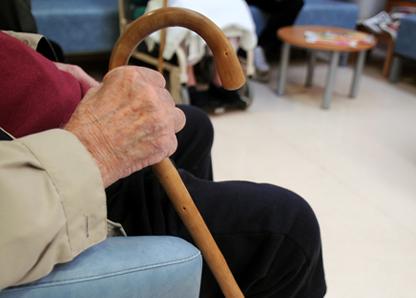Professionals intuitively recognise “frail” older people as more shrinked, and slowly moving. This phenotype is beautifully described by the Finnish painter Helene Schjerfbeck in the self-portraits up to her ninth decade. Increasingly, there has been a welcome policy move in recognising older individuals as a really valuable part of Society. The emphasis should be on ‘living well’, even with comorbidities. Some have rightly attacked blaming the ‘woes’ of the NHS on “the ageing population”.
The lack of definitive diagnostic criteria for ‘frail people’ through DSM or ICD has been a stumbling block, but professionals tend to recognise frail individuals when they see them. The thing not to do is to label all people who are above a certain age as “frail”: there are for example very many able and remarkably able people in their 80s and 90s.
And yet policy has failed to tackle this across many generations in English health policy, because other issues have been considered more urgent, such as A&E “waits”. When one problem appears to be getting solved, another one starts up. Some patients may feel that they will get a ‘better deal’ from a Trust which is observing the 4-hour wait, and prefer to be “blue-lighted” in an ambulance, than to wait for a more appropriate social care referral. Geriatricians are not considered the ‘cinderella service’ of the National Health Service, and care of the elderly wards have not traditionally been considered attractive for ‘high flying’ nurses or doctors, it is sometimes claimed.
This issue is not insubstantial. Out of an acute medical take of about 40-60 patients in one 24 hour period in a busy DGH or teaching hospital, by the law of averages, a handful will be ‘frail’ and then branded ‘social’. However, the needs of such patients should not be seen as a bureaucratic, administrative exercise on the acute medical take. These patients are important, as they are vulnerable for future ‘events’ involving acute medical care in the National Health Service (fragile may be a more physical counterpart of lack of resilience in wellbeing.) Clarity of vision and leadership are both critically needed. General Practitioners will often not need to visit a frail patient at home, unless something goes wrong. And yet when a frail patient ends up in hospital, say from having fallen over but not due to an obvious medical problem, the notes can be voluminous and unintelligible. At this point, the person becomes medicalised and gets plugged into the system at full force. So here is the first problem – when such a person ends up hospital, the communication between medical, psychiatric and social care services can be extremely poor. The care of the ‘frail person’ will be therefore a test case for the success of an integrated care service, when it finally appears.
All this does not mean ignoring the medical needs of the patient, but with a less ‘last minute approach’ investigations can be planned, like a 24-hour-tape or ECG if it is considered that a person is at risk of falling, for example. Tackling frailness indeed is what a person-centred care is designed for, some might say, and would help to enhance the dignity and perceived importance of care in older life. As both the Royal College of Physicians and Royal College of Psychiatrists embrace ‘whole person care’, and while SCIE continue to lead on ‘personalisation’, the hope is that the person will be given proper attention in a less panicked way. This would help enormously on steering the “National Health Service” away from a situation where it becomes a lass-minute “Fragmented Illness Service”
The individual gets better ‘whole person care’. And it will in the long run also save money.


